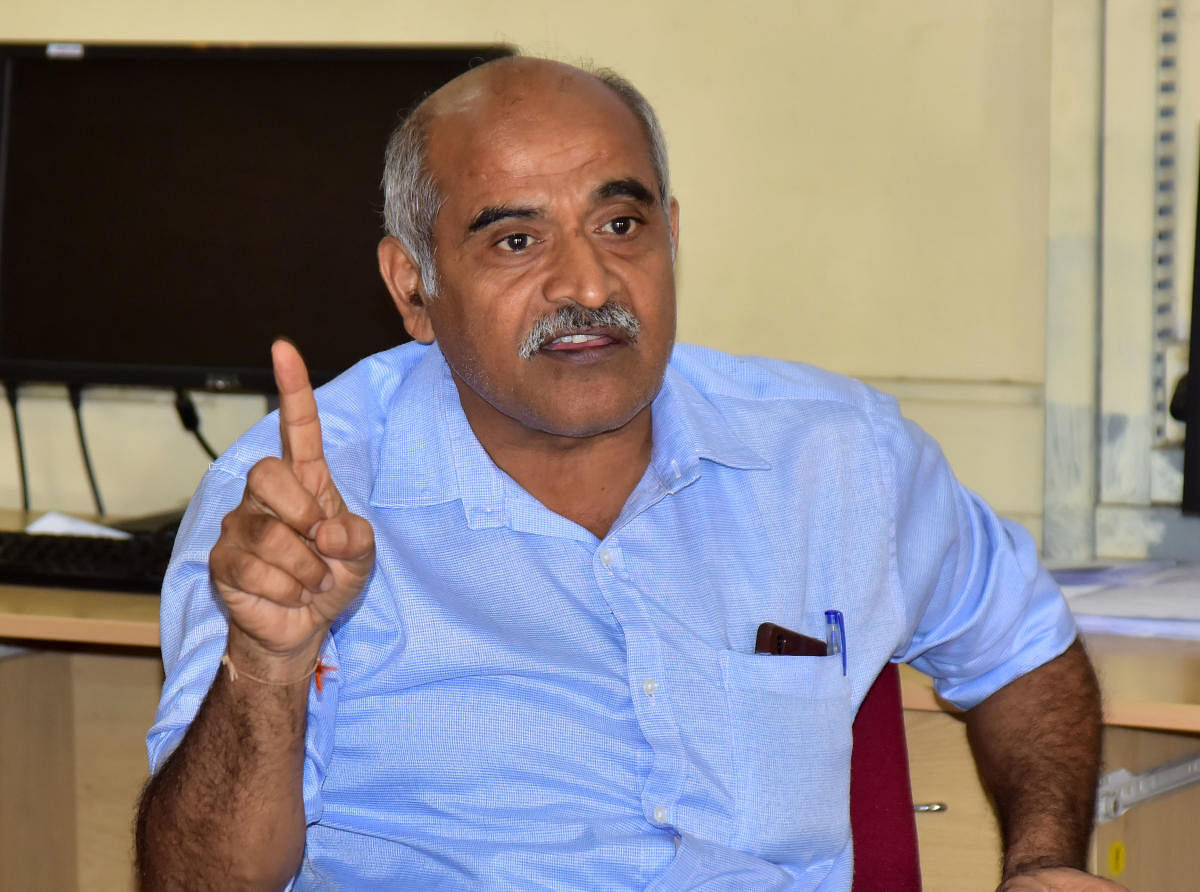
Lakshadeepotsava celebrations symbolically remind us that the ultimate goal should be towards enlightenment, well known Sanskrit scholar and columnist Dr Sonde Bhaskar Bhat said on Saturday.
‘Laksha’ in Lakshdeepotsava, can be interpreted as ‘Lakshya’ meaning goal. ‘Deepa’ signifies light. Thus the goal in the life of each individual should be to attain enlightenment, he said while interacting with journalists at the office of Prajavani-Deccan Herald at Yenepoya chambers in Balmatta.
Lakshadeepotsava also signifies hope as the light from thousands of lamps dispel darkness prevailing in our lives. Lakshadeepotsava is just not limited to a particular temple, day or a week. It can be observed on any day during the ‘Karthika Maasa’ which begins after Naraka Chaturdasi celebrations and up to ‘Amavasya’ (the first lunar phase of the new moon).
Dr Bhat, who had served as Sanskrit lecturer for 28 years in Shri Kateel Durgaparameshwari Degree College in Kateel, says Deepa and Utsavas (Celebrations) have had a special place in Indian traditions.
The clay lamp has been compared to the body and light as knowledge. Utsavas observed from the stage of birth of a child to death, all have a common goal of educating and instilling ‘Sanskar’ (values), said Dr Bhat, who has authored 24 books.
Tracing the origins of Lakshadeepotsava celebrations, he said Lord Krishna after slaying the evil Narakasura had released 16,000 women held captive by the demon. The women, who were sexually assaulted by the demon, feared that they would be ostracised on returning to their villages.
Lord Krishna had instilled courage and had ordered them to declare themselves as wives of Lord Krishna.
Thousands of women unable to contain their happiness had lit thousands of lamps and had burst crackers. Lakshadeepotsava was also a message to spirits, gods and goddesses watching from above that the people were leading a happy life, he added.
Since ages temples, a confluence centre for devotees of all ages had taken the lead in organising colourful Lakshadeepotsavas, Dr Bhat said.
Lakshadeepotsava highlights a message of remaining united. The entire world can be illuminated if people work unitedly. The utsav signifies completeness. The light in a lamp does not lose its brightness despite sharing it with thousands of lamps. The oil on the skin which does not go away without applying soap signifies relationship. The utsav motivates the pursuit of knowledge knowing well that happiness is derived from knowledge alone.
“The intensity of celebration differs from place to place and is influenced by the local ethos, lifestyles, sanskar among others. The grand scale of celebrations may not be witnessed elsewhere.
Likewise, Karaga festival is not observed in the same intensity in Dakshina Kannada district as in Bengaluru, added Dr Bhat, who has played a crucial role in over dozen temple brahmakalashotsavas and yaagas.